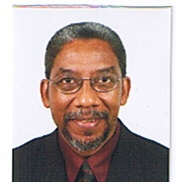|
The Court met today in special session to deal with the fall-out of its decision to strike out s.15 (1A) of the Legal Profession Act as being unconstitutional and discriminatory against non-nationals wanting to practice law in Trinidad and Tobago.
On July 25, Justice Vasheist Kokaram in his judgment in the case of a CARICOM citizen claiming that s.15 (1A) of the Act gave preferential treatment to TT nationals versus CARICOM nationals in being able to enter the legal profession in this country. Section 15(1A) allows only Trinidad and Tobago nationals to apply to be admitted to pectise in TT if they have qualifications other than a Legal Education Certificate (LEC) from the Hugh Wooding Law School. The Court while recognising that the section was introduced as an amendment of the Act to allow nationals to enter the legal profession with other non-LEC qualifications having worked with an Attorney at Law for a period of six-months and assessed as capable of entry to the profession, However, it does not allow that process for CARICOM nationals. The Genesis of Section 15(1A) In 1971, Barbados, Dominica, Grenada, Guyana, Jamaica, Trinidad and Tobago, the University of the West Indies and the University of Guyana signed an Agreement to establish the Council of Legal Education to provide training within the Caribbean for lawyers seeking to practice in the region. The CLE was set up 1 year after the UWI Law Faculty. UWI law graduates are able to automatically to enter any of the 3 Law Schools run by the CLE. Persons holding an LLB degree from a non-UWI university are required to pass an annual entrance examination set by the CLE to enter the Law Schools. Law School graduates are awarded an LEC which qualifies them to enter the profession. By the latter half of the 1990’s, entry to the Law Schools became increasingly difficult for non-UWI LLB holders because of the limitations of space in the context of the large number of TT students completing their Law degrees in the University of London’s External Student programme. London’s programme was available to mature, working and part-time students while UWI did not accommodate them. By 1997-98, TT students were the highest number of students in the world in the London LLB programme. Very few persons were able to gain entry to the Law Schools even if successful in the CLE entrance examination. Increasing numbers of persons had to repeat the entrance examination several times before being able to enter the LEC programme. In 1998, students holding London LLB degrees formed themselves into an organisation called the External Law Students Association (ELSA). ELSA sought to have a level playing-field for external students to have an equal opportunity with UWI students to access the Law Schools. In pursuit of that objective and given the automatic route for UWI graduates ELSA called on Government to expand the Hugh Wooding Law School or have all LLB holders (UWI and External) do the entrance exams and have an equal chance at entry to the Law Schools. At that time, holders of UK practising qualifications were permitted entry to the profession by completing a six-month course at the Law Schools. But, that was becoming more difficult because of lack of space. The Government of the day dis not agree with any of the proposals from ELSA. Instead, the Government decided to allow only TT holders of such UK practising qualifications (LPC) to enter the profession by completing an attachment with a legal practitioner for 6 months. So, the Government’s response to the demands of ELSA became the introduction of section 15(1A) as an amendment to the LPA to create this new 6-month attachment route, but only for TT nationals. The Outcome of the Change With the amendment and the 6-month attachment route, more Trinbagonians pursued the London external LLB programme and were admitted to practice law. In 2000, the number of Attorneys admitted to practice was just over 70. And since the new entry route, as many as 300 new Attorneys enter the profession annually at this time. Despite the costs of completing the LPC qualification as students are required to go to the UK for at least part of the time, the numbers of new Attorneys via this route has steadily increased. Access to the Law Schools has also increased due to expansion of the Hugh Wooding School and access to the third Law School in the Bahamas which was introduced around 2001. Many TT citizens practice law in other Caribbean territories. However, section 15(1A) did not make the 6-month attachment route to entry to the profession in TT available to non-TT citizens. Therefore, the case brought by Dianne Jhamilly Hadeed, a St Lucian who had the required qualifications, but has been prevent from being admitted to practise law in TT. While the Court saw nothing wrong with giving alternative routes for nationals to have the opportunity to advance themselves in the legal profession, it asked “What difference does it make if you are St. Lucian or Trinidadian. By striking out the section, the scores of TT citizens who have completed their LPC qualifications have to wait till the law is amended or the ruling is overturned on Appeal to be able, like the non-TT nationals to be admitted to the profession. The state has appealed and the Court met today to hear an application for a stay of its decision pending the appeal. Clyde Weatherhead A Founding Member of ELSA 29 July 2019 Comments are closed.
|
AuthorI am a appalled at the loss of the simple skills of discussing ideas and sharing Opinions to DEEPEN ANALYSIS and UNDERSTAND DEVELOPMENTS to ARRIVE AT SOLUTIONS. Archives
April 2024
Categories |

About Clyde Weatherhead
Clyde has been involved in public life as a political activist, a trade unionist, Lawyer, Teacher and Author |
Connect With Clyde
Write to Clyde on Facebook Visit Clyde's Author Page on Amazon Go To Discussion on Facebook For Employment Relations Issues |

 RSS Feed
RSS Feed